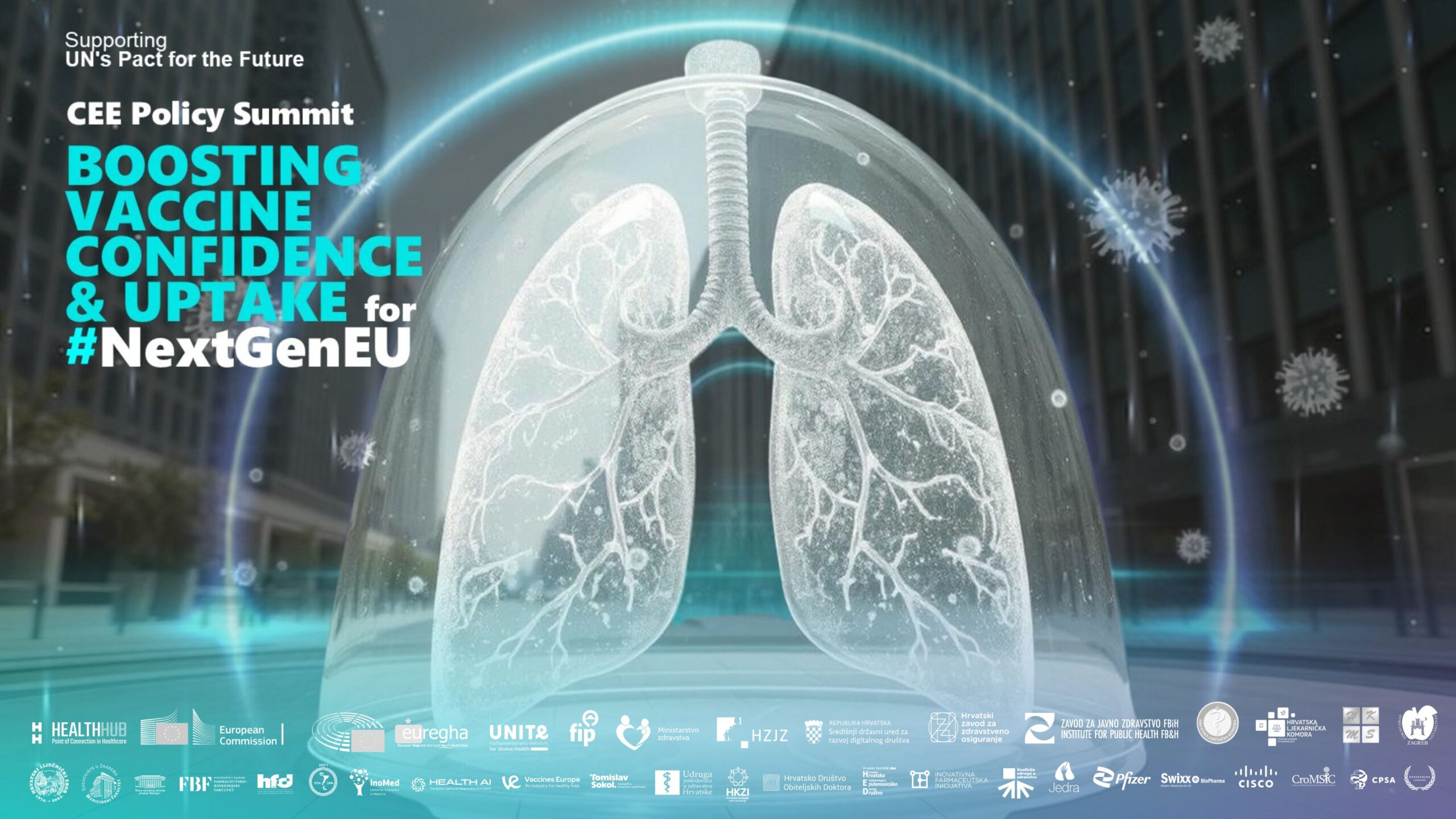Health Hub’s CEE Policy Summit – Prim. dr. sc. Siniša Skočibušić: “The future of the National Immunization Coalition lies primarily in its ability to recognize the key gaps in vaccination coverage, especially among vulnerable populations”
he story of dedication of prim. dr. sc Siniša Skočibušić to medicine and continuous professional advancement, shaped by diverse experiences and education, always striving for further multidisciplinary contributions to medicine and society, continues as he works as a director of the Institute of Public Health of the Federation of Bosnia and Herzegovina, serving the community and promoting public health. He contributed as a speaker during Health Hub’s CEE Policy Summit “Boosting Vaccine Confidence and Uptake for #NextGenEU”.
“The future of the National Immunization Coalition lies primarily in its ability to recognize the key gaps in vaccination coverage, especially among vulnerable populations.
The coalition should play a central role in building public confidence in vaccines, suppressing hesitation through educational campaigns based primarily on facts and should be done with targeted communication. The priority will be to secure fairness with a focus on financial affordability and as much coverage as possible, regardless of health insurance status.

prim. dr. sc Siniša Skočibušić, director of the Institute of Public Health of the Federation of Bosnia and Herzegovina
Through coordinated policies and strategies, the coalition can align national goals for immunizations with general public health goals, ensuring consistency between countries across Europe. Continuous monitoring and evaluation will make possible to adapt to new challenges, including new diseases and vaccine development.
Hesitation and insufficient vaccination coverage represent significant challenges in the Federation of Bosnia and Herzegovina,especially when it comes to aerosol-borne infections, such as influenza, COVID-19, RSV, pneumococcal infections, and especially whooping cough and measles.
“Hesitation and insufficient vaccination coverage represent significant challenges in the Federation of Bosnia and Herzegovina,especially when it comes to aerosol-borne infections, such as influenza, COVID-19, RSV, pneumococcal infections, and especially whooping cough and measles.”
Misinformation, skepticism on safety of vaccines, and limited awareness of severity of infectious diseases contribute to hesitance. Additionally, logistical barriers in the organization of health care, such as access to vaccination centers and the engagement of health workers, further complicate vaccine uptake and increase vaccination coverage.

To increase vaccine uptake and vaccination coverage in the Federation of Bosnia and Herzegovina a multi-pronged health literacy strategy is needed. First of all, engagement is key communities through collaboration with local leaders, health professionals and influencers in order to disseminate, first of all, accurate information.
“Through coordinated policies and strategies, the coalition can align national goals for immunizations with general public health goals, ensuring consistency between countries across Europe.
Continuous monitoring and evaluation will make possible to adapt to new challenges, including new diseases and vaccine development.”
In addition, it is important to use digital tools such as social networks and applications to make content based on facts and above all easily accessible. Interactive workshops that include joint discussions and questions and answers provide an opportunity to address directly concerns of the public.
Also, training of health professionals is necessary to learn more effective communication skills, but also responded with confidence, but also with conviction to the hesitation of patients.”





